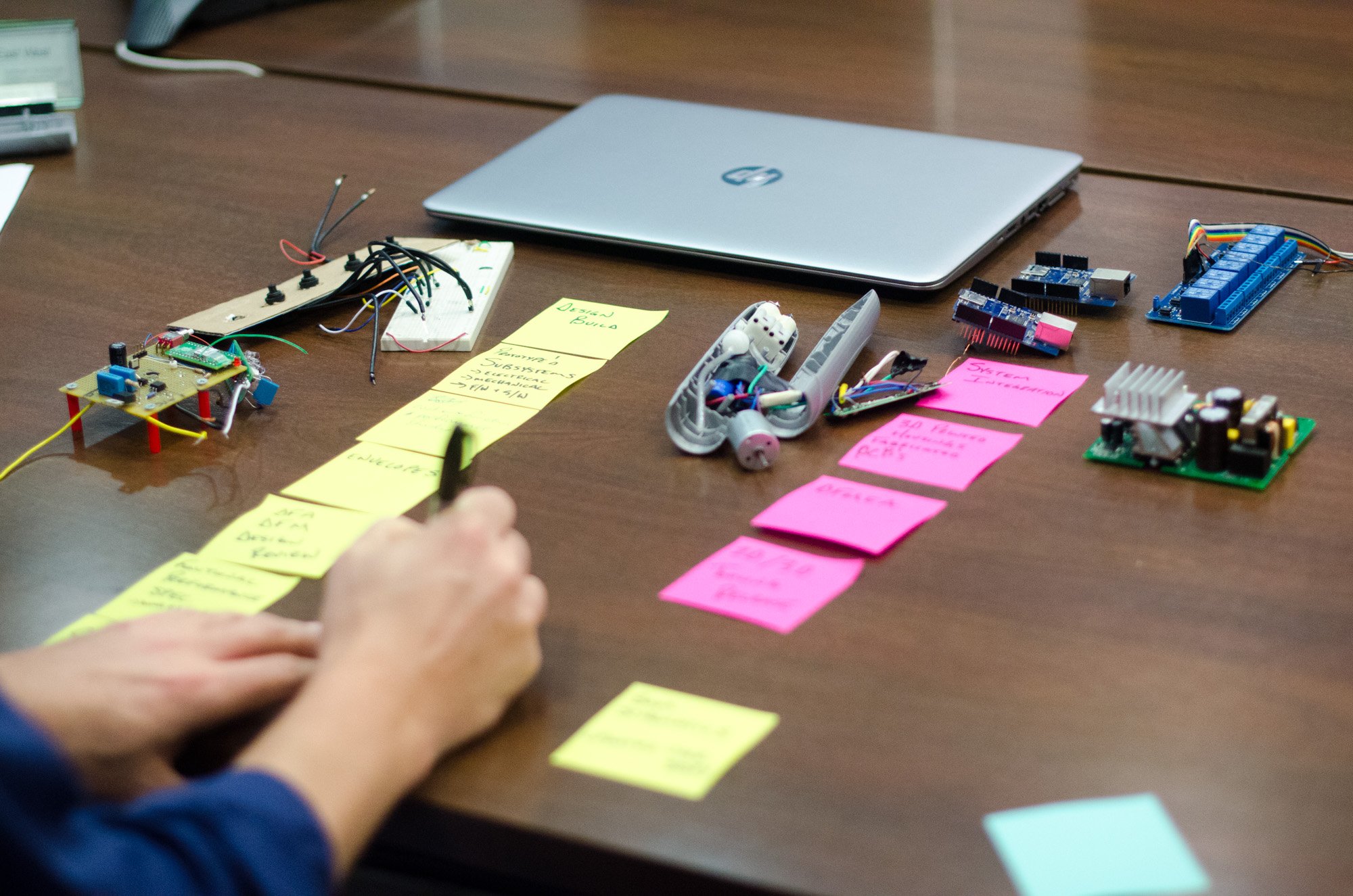Few things help a project — any project — more than objectivity. It's a great ability to view a task, whether editing a paragraph or designing a product completely free of emotion, but few people have that skill when it comes to their own work. That's why most companies use a project manager to guide the new product development process along.
Project managers act as a liaison between all the interested parties working together to get a product made — the customer, product designer, engineering team, manufacturer, sourcing team, suppliers and shipper.
A good project manager will:
- Communicate
- Listen
- Be organized
- Be detailed
- Delegate

The Value of a Project Manager in Product Development
- A project manager can help control the scope of a project. Without constant supervision of the overall scope, a project can easily start to incur “scope creep” either from constant changes from the customer or stakeholder or constant delays from supplier, which in turn adds extra time, money, or resources to a project and can make the project fall behind or not succeed.
- Communication. Proper channels of communication are key in the success of a project. A project manager is a communication facilitator and helps to ensure everyone involved in the project stays on the same page and there are few miscommunications.
- Efficiency and Scheduling. A project manager handles all aspects of timelines and schedules. This helps keep other members of the team more efficient — engineers can focus more on technical issues and sales can focus on purchasing and not worry about keeping track of timelines and deadlines, because the project managers manage all schedule related risks.
- Process improvement and process adherence. A project manager can help to initiate process improvements in various areas that may need to be improved and also to then roll out those processes and make sure everyone stays in compliance with those processes in future projects.
- Organization. The project manager helps to keep all aspects of the project organized and accessible with meetings, documents, and schedules.
What Does a Project Manager Do?
- The project manager creates budgets, timelines and arranges resource from suppliers
- He or she helps product development engineers stay on track with their tasks and monitors the progress of projects
- Using data from engineers and other stakeholders, the project manager creates status reports for management and follows the project through to completion
- The project manager also schedules and leads post-project inquiries to learn from the mistakes and successes which are incorporated into future projects.

Steps of Managing a Manufacturing Project
1. Project Initiation
The project initiation meeting takes place when early stage items like final drawing approvals, tool planning and prototyping are complete. The purpose of this meeting is to draft the Project Charter which outlines the project details at macro and micro levels. Questions to be addressed include:
-
-
- What is the project scope?
- Define the testing requirements and PPAP requirements (Level I, II or III)
- What manufacturing processes will be involved?
- What tooling needs to be built?
- What is the business objective?
- Why is this project valuable?
- What are the sampling requirements?
- What are the customer's expectations?
-
These questions are directed to the customer and suppliers. Their answers are built into the Project Charter which is shared with the engineering team and business units for approval. The project scope is "set" and the Charter becomes the basis for all communication about the project.
2. Communicate with the Team
It is the project manager's job to talk to their team, gathering the facts to create a project schedule that is based in reality. Sometimes negotiations have to happen in order to reconcile customer expectations and supplier capabilities. The project manager also explains any potential risks inherent in the project and applies any lessons learned from previous projects. The schedule is developed by asking the following questions:
-
-
- How long will it take to source the material, especially if yo're using a new supplier?
- How long will it take to build the tool?
- How long will it take to fix if something goes wrong?
- When will the final sample fun take place?
- What are the testing requirements?
- What are the transit times?
-
3. Monitor and Report
If a project manager is really good, you rarely know they are there. They move in the background managing operations, often with the use of cloud-based software tools like Easy Projects, which enable them to monitor the progress of a project from remote locations.
If there is someone tasked with "follow up," it is probably the project manager looking for information from a business unit for a supplier, customer or engineer.
4. Lessons Learned & Applications
After samples are sent, approved and the project is moving forward, the project manager schedules a "lessons learned" meeting - an after-action debrief to discuss what steps worked and what didn't.
The lessons learned meeting is one of the most important steps in the product development process as information gained through experience helps the process get better each time.
A good project manager is like a pair of binoculars, able to move easily between the micro and macro view of a project. They know all data - good or bad - has value because it can be used to make the team better.
Product development is challenging enough on its own. Do you really want to go through the process without project manager to help guide you through it? Make sure your contract manufacturer uses project managers in their product development process. You will be so glad you did.




.jpg?width=176&height=56&name=MR_associatedNetwork_logo%20(1).jpg)